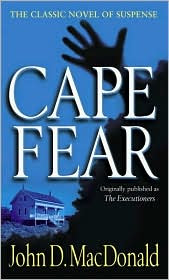The current featured contributor at
Writers Read: David Levien, author of
13 Million Dollar Pop.

His entry begins:
Killing Pablo, Mark Bowden
This book is a definitive telling of Colombian law enforcement, along with U.S. Delta Force, going after the richest, most powerful and notorious drug cartel boss in history. Pablo Escobar was a billionaire and in many ways more powerful than even the President of his country. Finally, his brazen criminality and outrageous violence compelled the governments to overcome corruption and act. Entire countries, with military resources, have an incredibly difficult time bringing down this criminal overlord. Ultimately, it is the families of Escobar’s victims (innocents and criminals alike) who come forth to help the soldiers in his being taken out. Not quite as riveting as Bowden’s brilliant Black Hawk Down, but...[read on]
Among the early praise for
13 Million Dollar Pop:
“Hired to protect prominent businessman-turned-political candidate Bernard "Bernie Cool" Kolodnik, private investigator Frank Behr proves his worth by saving Kolodnik when  an attempt is made on his life. But he's really not sure what happened when those automatic weapons started blazing, and he's even more suspicious when the police hush up the incident. Levien has Edgar and Shamus nominations to his credit and seems to be building. Thriller fans should definitely investigate.”
an attempt is made on his life. But he's really not sure what happened when those automatic weapons started blazing, and he's even more suspicious when the police hush up the incident. Levien has Edgar and Shamus nominations to his credit and seems to be building. Thriller fans should definitely investigate.”
--Library Journal
“If you take heart medicine, you'll want to consult with a doctor before reading this pulse-quickening thriller from David Levien…. With his machete-sharp wit, Levien paints a vivid picture of what happens when power lands in the hands of the wrong people. Not surprisingly, his characters are alive with energy, and his rapid-fire plot is hunkered in realism. All in all, [13 Million Dollar Pop] is a thunderous book that shines a light on dirty politics and the repercussions of getting caught in the crossfire. Bullet for bullet, this is one explosive read.”
--Fredericksburg Free-Lance Star
Learn more about the book and author at
David Levien's website.
Levien, author of
Where the Dead Lay and
City of the Sun, has been nominated for the Edgar, Hammett, and Shamus awards, and is also a screenwriter and director (including co-director of
Solitary Man (2009) starring Michael Douglas).
13 Million Dollar Pop is his third Frank Behr novel.
Writers Read: David Levien.
--Marshal Zeringue
 About the book, from the publisher:
About the book, from the publisher:











































